Baby’s Weight Loss After Birth – What’s Normal and What’s Not

The birth of your little munchkin is a momentous occasion that brings great joy and excitement. However, as new parents, you also feel the stress and overwhelm of significant life changes you must make to provide the best care for your baby. Part of this is worrying about your baby’s health and wondering if the changes they are experiencing are on par with an average baby’s growth and development.
It is normal for new parents to feel concerned for their baby’s health and well-being, and your baby’s initial weight loss may be one of the concerns troubling you. This article will shed light on newborn weight loss after birth, what is acceptable, and steps to take if it is not.
Is It Normal For a Newborn To Lose Weight After Birth?
Babies are born with extra fluid in their bodies, and this weight loss directly results from fluid loss. In the first few days after birth, babies are expected to lose 7-10% of their body weight to accommodate consumption of fluids like milk (1).
Why Does a Newborn Lose Weight After Birth?
So, why do babies lose weight after birth? Weight loss in newborns after birth is normal, primarily due to fluid loss. Babies have tiny tummies and cannot initially absorb sufficient amounts of milk to compensate for this fluid loss. However, they make up for this loss as they grow by consuming ample milk (2).
What Is Considered a ‘Normal Weight Loss’?
Most babies may lose 5 to 10 per cent of their body weight (3). This means if your baby is born with a birth weight of 3500 grams, they may lose up to 350 grams within a week after birth, bringing their weight up to 3150 grams. It may be considered normal if your baby loses up to 10 per cent of his body weight.
When Do Babies Regain Their Birth Weight?
Though you may worry about your baby’s weight loss after birth, it is essential to understand that your baby’s weight gain is directly related to your breast milk supply. This means that once your milk supply is in place, which may happen between the 3rd and 5th days after birth, your baby may not lose further weight; instead, he’ll eventually start gaining weight. Within 10-14 days, your baby should regain their birth weight, unless they were born premature or have medical complications, in which case it may take up to three weeks (4). Here’s what may usually happen:
- Your baby’s weight from birth to 3rd or 5th day – up to 10 per cent of weight loss
- 3rd to 5th day – Your baby’s weight remains constant, or they may gain or lose a few grams
- 5th day onwards, or as and when your milk supply increases – your baby may begin to gain approximately 130 grams to 330 grams a week, or 0.6 kilograms to 1.4 kilograms per month, for the first three months.
What If More Than 10% of the Original Birth Weight Is Lost?
Though weight loss is considered normal in newborn babies, if your baby is reaching a weight-loss mark of more than 10 per cent, they’ll be closely monitored by the doctors. Also, how much weight your baby may lose may depend on how well they adjust to their weight-gaining schedule and how well the mother lactates. It is also seen that breastfed babies may lose more weight in comparison to bottle-fed babies, which is not an indication that bottle-feeding is a healthier option to help your baby regain his lost weight.
What is ‘Excessive Weight Loss’ in an Infant?
If your baby loses more than 12 per cent of his body weight, it may seriously threaten their health. More baby weight loss after birth means more fluid loss, which may lead to dehydration, which has fatal consequences.
1. Is It Dangerous?
Where average weight loss in a newborn baby in the first 24 hours may not be dangerous for your baby, any excessive weight loss may pose a grave danger to him. This is because excessive weight loss may amount to dehydration, which may thicken the baby’s blood. This may strain your baby’s heart to work more, and under complex situations, the blood vessels may clog up, leading to life-threatening complications. Low amounts of fluid in the body may increase sodium levels in the baby’s body and adversely affect the cells. Together, dehydration and high sodium levels may lead to fatal complications like renal failure, hypovolemia shock, thrombosis, seizures or fits (5).
2. What Causes It?
In most cases, babies make up for their normal baby weight loss after birth. However, under the following circumstances, your baby’s weight loss may reach dangerous levels:
- If your baby may suffer from some underlying medical condition.
- If your baby is not feeding frequently, this may happen due to missed feeding sessions, or the baby may refuse to feed due to being fed forcefully. It is essential to feed a baby on demand and at regular intervals. Failing to do either may lead to weight loss issues.
- If your baby is not getting enough milk, this may happen due to improper latching or feeding position, which could also be one reason for the baby’s weight loss after birth and while breastfeeding (6).
3. How Do Doctors Diagnose Excessive Weight Loss in Babies?
Here’s how your doctor may establish the signs of your baby’s excessive weight loss after birth:
- Your doctor may check your baby’s behaviour and appearance. Your baby should look active and energetic rather than exhausted, which could indicate that your baby is unwell.
- Your doctor will see how well your baby latches to the breast and whether it makes a gagging or swallowing sound.
- Your doctor will also check how many dirty or wet nappies your baby produces daily. On average, 5 to 10 wet nappies and 3 to 5 dirty nappies in a 24-hour cycle for a newborn baby are considered normal.
4. What If There Are Any Concerns?
If there are any of the above reasons may be a cause for concern, then your doctor may suggest the following:
- If a baby is unwell, then the doctor may thoroughly check the baby to establish his health condition.
- You may be referred to a lactation consultant, or your midwife may guide you on the proper feeding and latching positions.
5. How Can Parents Help to Prevent Excessive Weight Loss in Their Baby?
Here are some preventive measures that parents may follow to prevent excessive weight loss in their baby:
- Have ample skin-to-skin contact with your baby to make him feel cosy and relaxed. This may help him feed better, too.
- Ensure you follow a good feeding and latching position to ensure the baby is feeding correctly.
- Be aware and proactive. This may help you determine if any situation needs to be brought to your doctor’s attention.
- A mother knows what may be best for her baby; therefore, you may go by your instinct and feed your baby on demand.
- If you require help or assistance, do not hesitate to ask for help and act promptly.
FAQs
1. How much weight does a newborn lose in the first week?
All babies are different and unique, and their physiology will affect the amount of weight your baby will lose in the first week. Generally, babies lose an average of 5% of their body weight, which can even go as high as 7-10% (4).
2. When does newborn weight loss stop?
Newborn weight loss usually stops after the first 3-4 days or within the first week, depending on the baby’s body weight and fluid retention at birth (7).
It is normal for parents to feel concerned about the well-being of their newborn baby. If you register any weight loss issues in your newborn baby, you must seek immediate medical assistance for the same.
References/Resources:
1. Your Newborn’s Growth; Nemours Kid’s Health; https://kidshealth.org/en/parents/grownewborn.html
2. Your Newborn’s Weight Gain; Lancaster General Health; https://www.lancastergeneralhealth.org/health-hub-home/motherhood/the-first-year/your-newborns-weight-gain
3. Average Newborn Weight; American Pregnancy Organisation; https://americanpregnancy.org/healthy-pregnancy/first-year-of-life/newborn-weight-gain/
4. Prevention of Excessive Weight Loss in the Breastfed Neonate and Faltering Growth in Infants; NHS; https://www.nhshighland.scot.nhs.uk/media/q2oowgce/prevention-of-excessive-weight-loss-in-the-breastfed-neonate.pdf
5. National Guideline Alliance (UK); Faltering Growth – recognition and management. London: National Institute for Health and Care Excellence (NICE); https://www.ncbi.nlm.nih.gov/books/NBK536449/; September 2017
Also Read:
Newborn Weight Gain
Low Birth Weight in Infant
Reasons of Baby Not Gaining Weight
Was This Article Helpful?
Parenting is a huge responsibility, for you as a caregiver, but also for us as a parenting content platform. We understand that and take our responsibility of creating credible content seriously. FirstCry Parenting articles are written and published only after extensive research using factually sound references to deliver quality content that is accurate, validated by experts, and completely reliable. To understand how we go about creating content that is credible, read our editorial policy here.






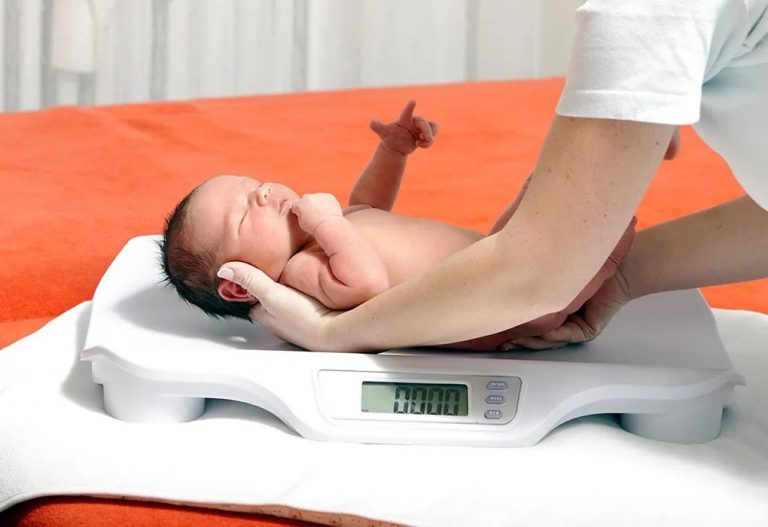
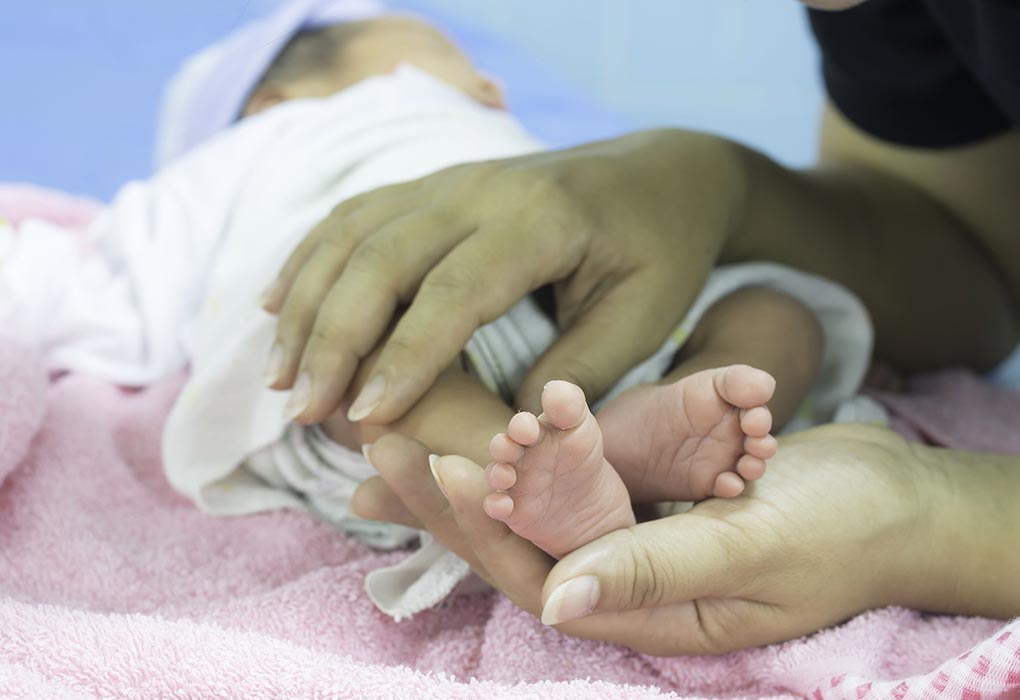


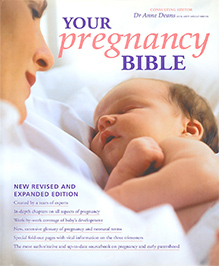
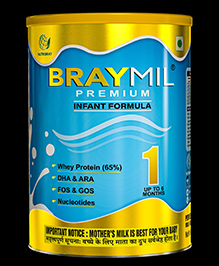



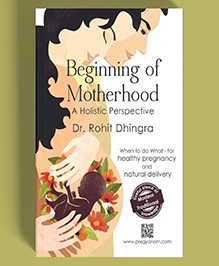

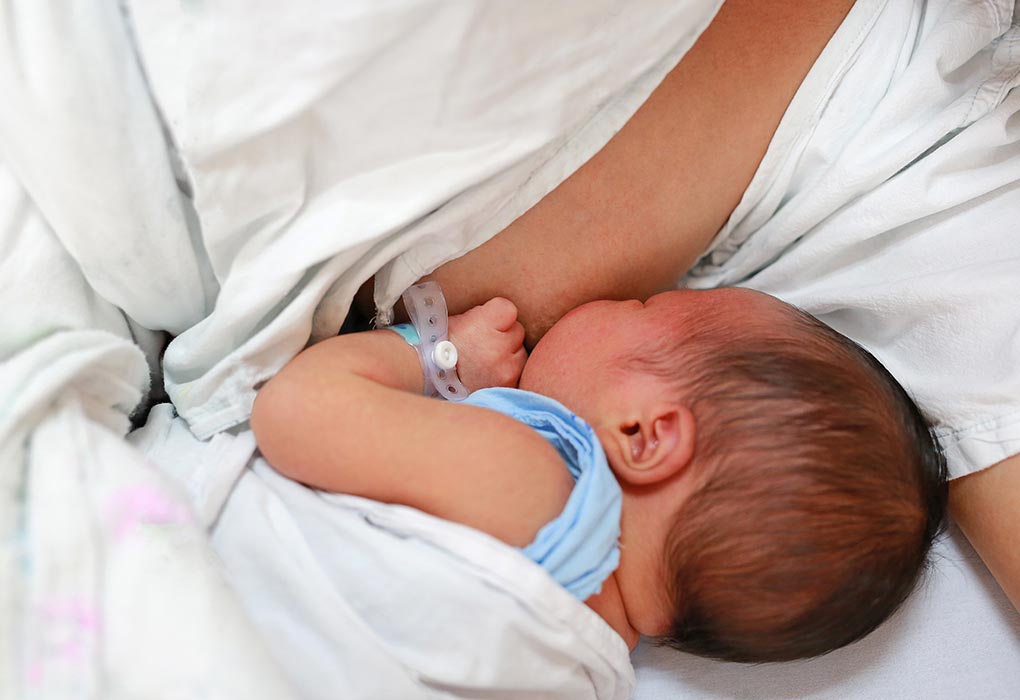
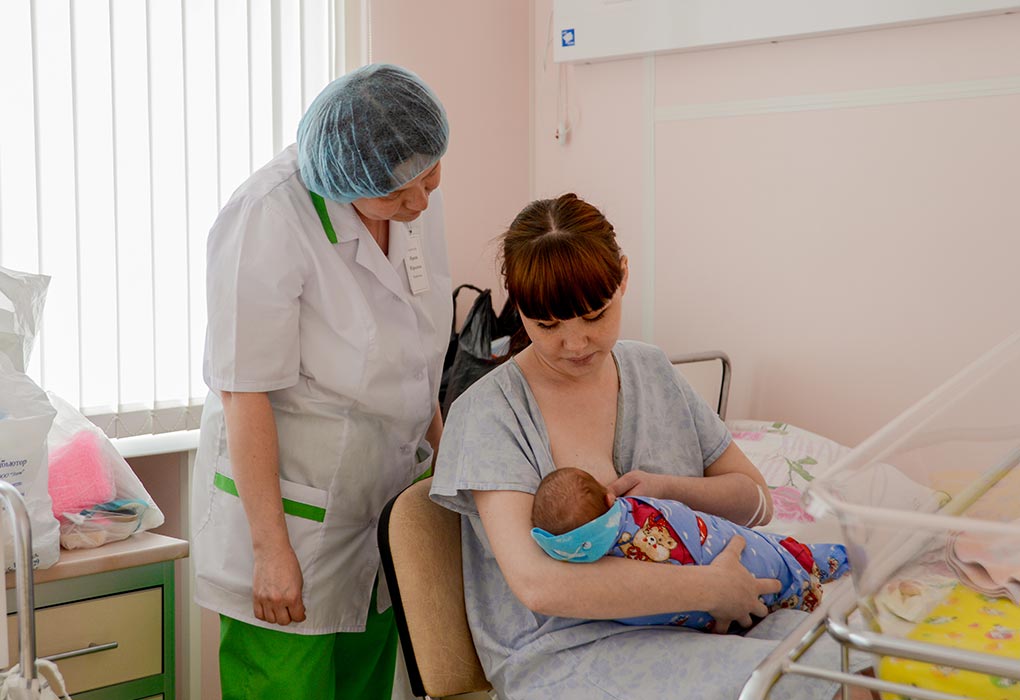

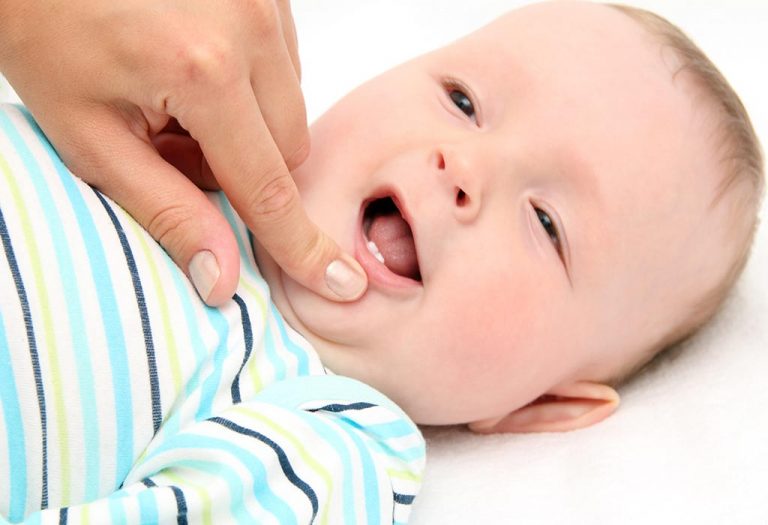





.svg)


















